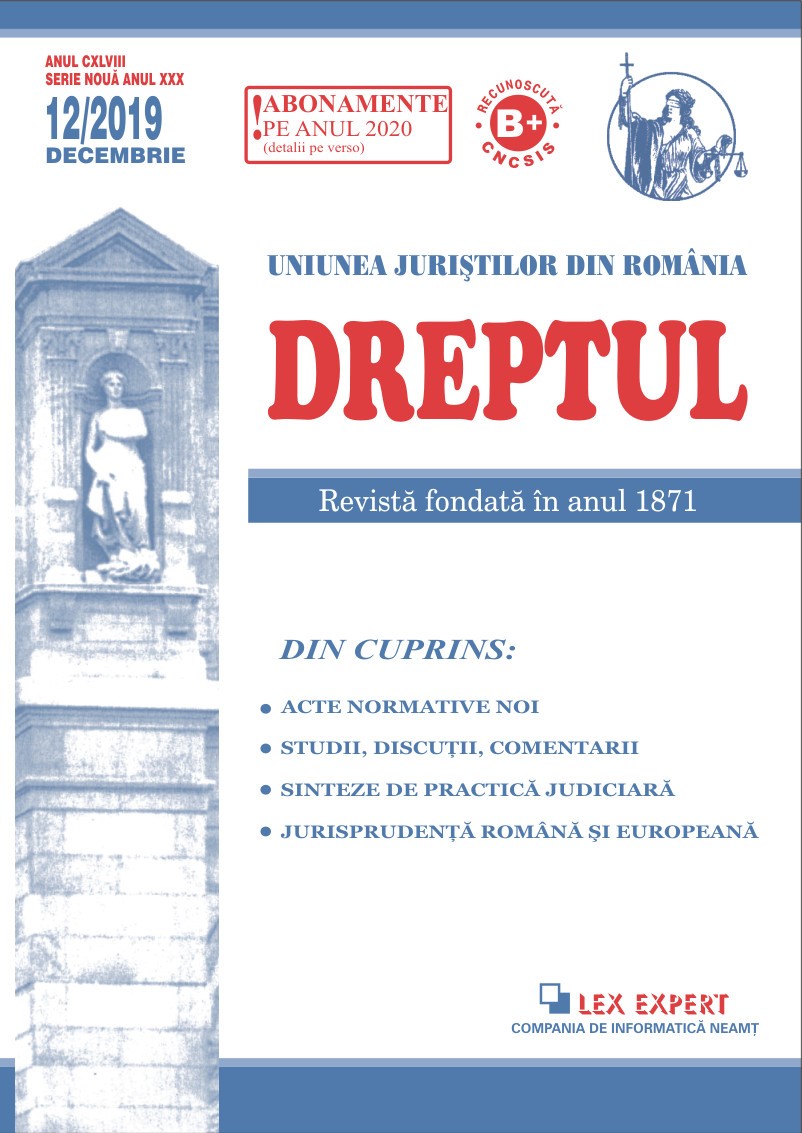Proba prin rapoartele de expertiză în procesul civil (I)
Evidence by means of the expertise reports in the civil trial (I)
Author(s): Maria FodorSubject(s): Civil Law
Published by: Uniunea Juriștilor din România
Keywords: expertise; expertise report; probative force; judicial expertise; extrajudicial expertise;
Summary/Abstract: Expertise is the activity of research of certain facts or circumstances of the case, which requires specialized knowledge, activity carried out by an expert or, in the cases provided by law, by a specialist in a specific field, designated by the court at the request of the parties or ex officio, and whose findings and/or conclusions are reported in a written document, called an expertise report. As such, the expertise and the expertise report are two interdependent operations, since the expertise report is the follow-up of the expertise, its final act, and the expertise is the research activity on which the expertise report is based. Although the legislator establishes that the evidence can be provided, among others, by means of the „expertise” (Article 250, Articles 330–340 of the Civil Procedure Code), which constitutes the means of proof, from a legal point of view, is the expertise report, and not the expertise itself. The expertise can only concern factual circumstances on which the expert is asked to give clarifications or to ascertain them, circumstances which require specialized knowledge and which help to solve the case. The legal norms cannot form the object of the expertise, because the judges must know the law in force in Romania. However, the content of the foreign law is established by the court of law through „attestations obtained from the state bodies that have enacted it”, by „expertise opinion” or by another appropriate way [Article 2562 (1) of the Civil Code]. In principle, admitting or ordering an expertise is optional, the court being free to assess whether in the case it is admissible and conclusive a certain expertise or another, or none. There are, however, situations in which the court cannot assess the admissibility of the expertise, because this assessment was made by the legislator himself, by establishing, in particular, cases of compulsory expertise, under the sanction of cancellation of the judgment. For example, in the case of late registration of birth, in the matter of expropriation for cause of public utility, within the measures prior to the interdiction.The expertise can be carried out in court, if the experts can immediately express their opinion on unclear factual circumstances (in which case an expertise report is not necessary), or outside the court, if the expertise involves some time-consuming work, travels, analyses, measurements, etc. If it is required an on-site work to perform the expertise or the parties’ explanations are necessary, the operation can only be performed after their summoning by registered letter with declared content and acknowledgment of receipt. As in the case of the other means of evidence, the evidentiary power of the expertise report is left to the free appreciation of the judge. However, regarding the mentions contained in the expertise report, we are making the following distinction: the mentions regarding the factual findings of the experts (the date of the report, the pleadings of the parties made in the presence of the expert, etc.) are evidence until the forgery is declared, because the experts work as delegates of the court, and the expertise report has the legal nature of an authentic document; the other mentions (the answers given by the expert to the questions asked and the conclusions of the report) do not bind the court, they can be argued against by the other evidence from the file. In some cases, the expertise report can only be removed by means of evidence of equal scientific value. These are the conclusions of the forensic expertise report, whose probative value has some particular features. For example, the serological sample cannot be removed by the depositions of witnesses. The filiation test, performed by DNA fingerprinting, provides conclusive results with an accuracy of approximately 99.999%, even 100%.
Journal: Revista „Dreptul”
- Issue Year: 2019
- Issue No: 12
- Page Range: 77-117
- Page Count: 41
- Language: Romanian
- Content File-PDF

